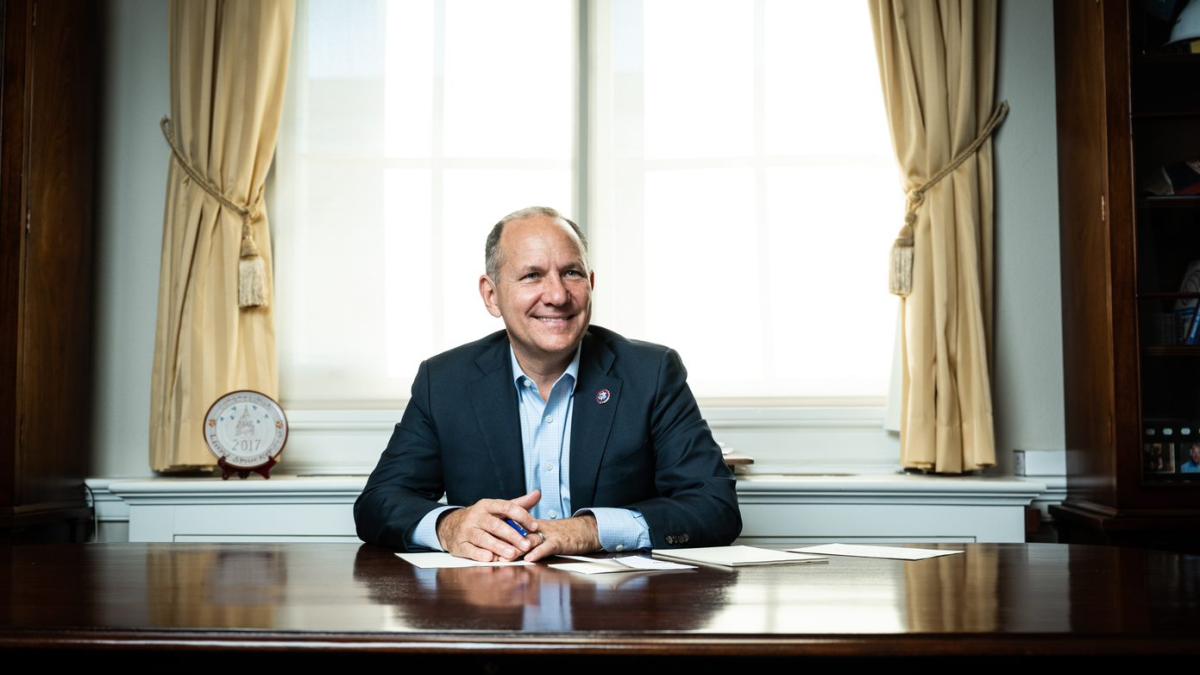Smucker Introduces Legislation to Aid Foster Children and Families

Washington—Rep. Lloyd Smucker (PA-11) has introduced three pieces of legislation aimed at aiding foster children, families, and child welfare agencies (CWAs). Smucker’s bills would expand state flexibility to utilize funding provided by Title IV-B of the Social Security Act to support foster children and families, require a reduction in administrative burden for CWAs, and assist CWAs in recruiting and retaining talented caseworkers.
The Empowering Kinship Providers and Youth Act
The Empowering Kinship Providers and Youth Act would add supporting kinship families, transition-age youth, and peer support programs as eligible uses of Social Security Title IV-B funds. These proven strategies will aid in supporting permanency for foster children. Rep. Smucker introduced this legislation with Rep. Don Davis (NC-01).
“Every child deserves to grow up in a loving and safe home. We can improve outcomes for foster children and brighten their futures by allowing states greater flexibility to use federal funds. I appreciate Rep. Don Davis joining me in introducing this legislation,” said Rep. Lloyd Smucker.
“We must do more to support youth who are not raised in traditional family settings,” said Congressman Don Davis. “By providing states with more flexibility to support kinship care, peer support, and other vital assistance programs, Congress can provide hope to young people experiencing difficult and traumatic upbringings.”
This legislation enjoys support from national and local stakeholders.
"This bill helps children and empowers their families to support them with wrap-around services such as mental health care, preventative care, and peer-to-peer mentoring. Acknowledging the critical role that kin play in caring for children, this bill also encourages the use of legal guardianship as a viable permanency option for children who cannot safely reunite with a parent,” American Bar Association President Mary Smith said. “For more than 25 years, the ABA has recognized the vital importance of protecting at-risk children and providing support to their families to create safe and healthy living environments.”
"We appreciate Congressman Smucker’s understanding of the needs of the transition age youth population," said Kari King, President and CEO of Pennsylvania Partnerships for Children. "Federal supports for kinship care, services for transition-age youth, and help for young parents are vital in the lives of older foster youth, and the inclusion of peer-to-peer supports is a logical next step."
The Reducing Administrative Burden for Child Welfare Agencies Act
Administrative burden is one of the top issues that state CWAs have brought to Congress’ attention for reform. CWAs must comply with numerous state plan and caseworker requirements to qualify for federal funding.
Rep. Smucker’s legislation would instruct the Department of Health and Human Services to reduce the administrative burden imposed on state and tribal CWAs through the review of data collection systems to eliminate unnecessary duplication, analysis of the administrative burden on CWAs, and soliciting input from CWAs. Smucker’s legislation is modeled after similar successful provisions included in 2022’s bipartisan reauthorization of the Maternal, Infant, and Early Childhood Home Visiting program.
“Strong accountability measures are critical for those charged with ensuring the welfare of children in foster care. However, children are not well served by agencies needlessly overburdened in administrative red-tape. CWAs should be focused on their core mission of serving children and families, not complying with overly burdensome bureaucracy. My legislation takes steps to bring relief to overburdened agencies while continuing to ensure robust protections for children and families,” said Rep. Smucker.
The Child Welfare Workforce Development Act
CWAs across the nation are facing massive staffing shortages. For example, the 2022-2023 annual report of the Pennsylvania Child Welfare Resource Center indicated that over thirty percent of caseworker positions were not filled and nearly twenty percent of supervisory positions in county CWAs were not filled.
Rep. Smucker’s legislation would bolster CWA workforces by allowing federal funds provided by the Monthly Caseworker Visit program to be utilized to reduce caseload ratios, incentivize the recruitment and training of caseworkers, provide for technological improvements, and support caseworker coaching programs.
“CWAs are overburdened and understaffed. Investing in efforts to recruit and retain caseworkers will ensure children and families are provided with the support they need to thrive,” said Rep. Smucker.
Background:
- Approximately 19,000 foster youth age out of the system every year.
- Unemployment rates for individuals aging out of the system can reach 69 percent according to the American Youth Policy Forum.
- It is estimated that 20 percent of foster care youth experience homelessness upon turning 18.
- Studies indicate former foster care youth are involved in the justice system at high rates, with 70 percent having been arrested by age 26.
- Improving permanency for foster youth can lead to better outcomes and put them on a pathway to lifelong success.
# # #